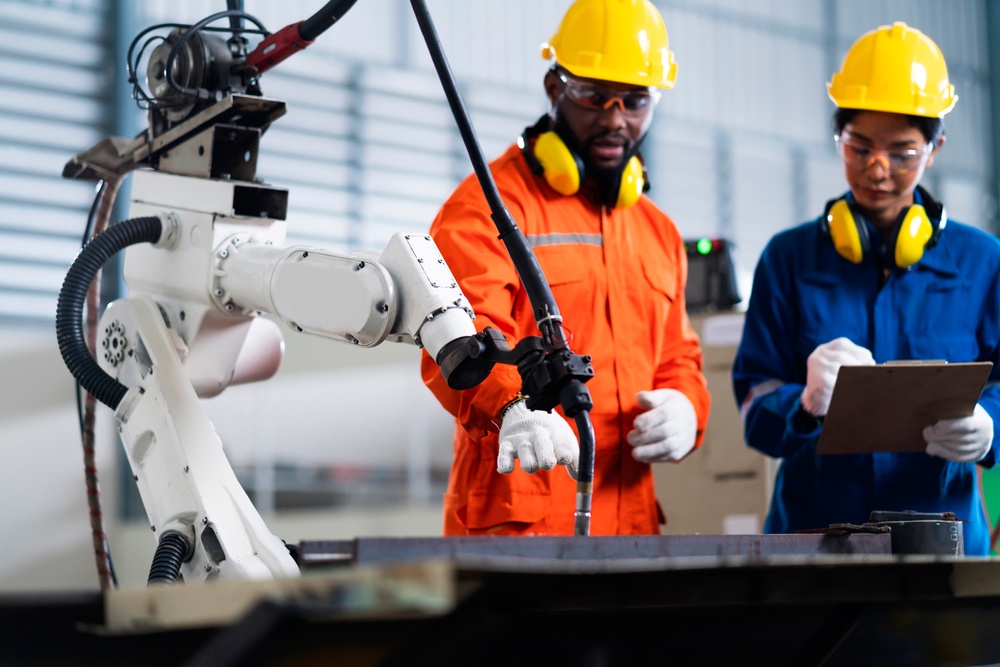Advancements in technology and the development of AI have enabled the food and beverage industry to make changes to the way it operates. In doing so, businesses can innovate and improve efficiencies within the sector and improve safety for workers and quality in produce.
With 81% of businesses reporting increased production costs in 2022, and demand increasing too, there is opportunity for the further development and implementation of technology to have industry-wide benefits.
Increased Food Safety
Food safety and regulations are critical in all steps of the industry, and advancements in technologies have allowed companies to have even more control over their food safety and hygiene.
Meeting regulations in relation to food and beverage safety is crucial; insight shared by Paul Taylor, Product Manager FPE Seals, Industry experts in sealing solutions for food and beverage processing, who says:
“The ideal seals used in food and beverage machinery can be tricky to find, and they must show compatibility and durability against a range of different food types and ingredients, such as sugar, fats, acids and oils.
Across the food and beverage industry machinery is widely used, and whatever the machine, ensuring smooth running and compliance with FDA regulations is imperative. A specialist can help you look after machinery, including providing components such as seals and gaskets.”
Regulations in food manufacturing are essential in order for the business to operate. The consequences of not meeting standards can be dire for an organisation, and the digital aspect can certainly assist with compliance to this. The term digital transformation can be attributed to businesses within the industry, as they look to introduce a top-down strategy of digitising their procedures.
Automation and Artificial Intelligence (AI)
There is a multitude of reasons that the development of AI can aid the food industry and streamline a number of processes to enable greater efficiencies. One key role technology and automation has to play is that of administrative tasks.
Outdated technologies are something that many manufacturers have been addressing and replacing in order to deal with disruptions and supply chain problems, including the implementation of automated systems to look after many admin tasks that are vital to the business but time-consuming for employees.
In addition, responding to customer demand is very important; too much produce can spoil and go unsold, but too little produce will not enable you to keep up with demand and miss out on all-important sales. AI can allow brands and manufacturers to predict the buying habits of existing and potential customers, to make a more efficient supply and demand process.
By using elements of technology, companies can streamline processes and allow for a more stringent food hygiene protocol. There are smart apps, that enable checklists and documentation to be stored digitally. These processes can allow a company to offer greater transparency of their supply chain, something which 94% of people deem as something that will make them more loyal to a brand.
By utilising technology, brands can create and share checklists, digitally time stamp, and store everything in one place. This cuts down on admin procedures and manual processes, and reduces risks of documents being lost along the way.
Robotics
The implementation of robotics allows for the efficient production of food, something which is a very important requirement for increasing food production. In 2021, food and beverage production increased largely due to the pandemic, but 67% of manufacturers reported that an increase in 2022 was largely down to new customers and business performance.
To keep up with demand and customer expectations, technology is an option that many businesses are considering. Robotics can be utilised to enhance, rather than replace, the human input of a production line while increasing production levels.
Crucially, the real benefit will come from integrating robotic technology into the overall production, though they can provide benefit as a standalone machine. The benefit, aside from increased efficiency as the robots can perform the tasks faster, comes from increased safety to human workers. These workers can then be utilised in other, less risky areas of the production cycle. This element of technology is also used in customer facing areas of the industry, in kitchens to assist with butchery and even food preparation.
Sources
AI in the Food Industry is Transforming the Business (clickworker.com)
The State of Food Manufacturing in 2022 | Food Engineering (foodengineeringmag.com)
https://www.fpeseals.com/seal-kits_5


No comments yet